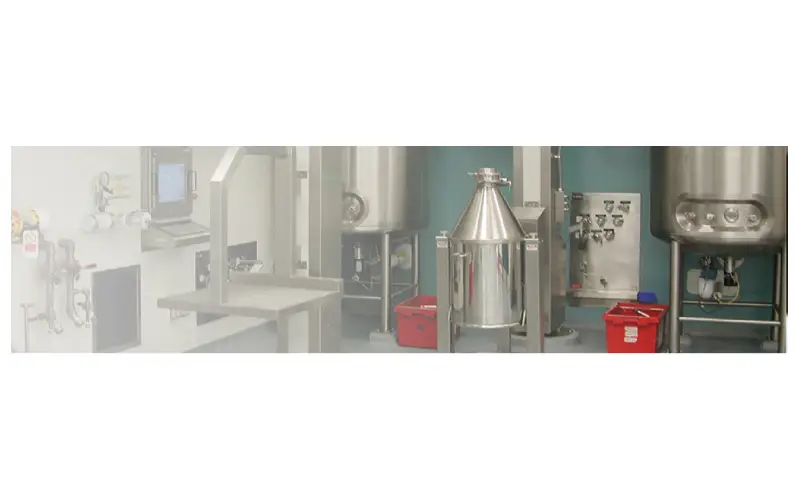Lab scale blenders play a pivotal role in enhancing research efficiency across various scientific fields. These sophisticated devices are designed to mix and blend substances with precision, allowing researchers to conduct experiments with accuracy and consistency. By streamlining the mixing process, lab scale blenders enable scientists to optimize their workflow, saving time and resources. Additionally, the versatility of these blenders makes them invaluable tools in scientific laboratories, where they can be used for a wide range of applications, from pharmaceutical development to food science. In this introduction, we will explore the impact of lab scale blenders on scientific innovation and how they drive progress in research endeavors.
Mixing Solutions: Lab Scale Blenders Revolutionize Scientific Experimentation
Lab scale blender offer precision mixing solutions that revolutionize scientific experimentation. With their ability to blend ingredients with accuracy and uniformity, these blenders ensure consistent results in research studies. Whether mixing chemicals for pharmaceutical formulations or creating homogeneous mixtures for material science experiments, lab scale blenders provide scientists with the control they need to achieve precise outcomes. By eliminating variability in mixing processes, these blenders enhance the reliability and reproducibility of scientific experiments, ultimately advancing the field of research.

Versatile Tools For Discovery: The Capabilities Of Lab Scale Blenders
Lab scale blenders serve as versatile tools for discovery, offering researchers the flexibility to explore a wide range of applications. From blending powders and granules to emulsifying liquids and suspensions, these blenders can accommodate various substances and mixing requirements. This versatility allows scientists to conduct experiments across different disciplines, from chemistry and biology to engineering and beyond. Whether developing new pharmaceutical formulations, optimizing food processing techniques, or synthesizing materials for advanced technologies, lab scale blenders empower researchers to push the boundaries of scientific discovery.
Mixing Technologies: Driving Scientific Breakthroughs With Lab Scale Blenders
Lab scale blenders leverage innovative mixing technologies to drive scientific breakthroughs. With advancements in blending mechanisms, control systems, and design features, these blenders offer enhanced performance and functionality. High-speed mixing capabilities enable rapid blending of ingredients, while programmable settings allow for precise control over mixing parameters. Additionally, features such as vacuum mixing, temperature control, and inert gas purging enable researchers to perform specialized mixing processes with ease. By harnessing these innovative technologies, lab scale blenders empower scientists to explore new frontiers and unlock novel insights in their respective fields.
Optimizing Laboratory Processes: Harnessing Lab Scale Blenders For Improved Results
Lab scale blenders play a crucial role in optimizing laboratory processes, leading to improved results and increased efficiency. By automating mixing tasks and reducing manual labor, these blenders streamline workflow and minimize human error. Integrated monitoring and control systems provide real-time feedback on mixing conditions, allowing researchers to make adjustments as needed to achieve desired outcomes. Moreover, the scalability of lab scale blenders enables seamless transition from small-scale experiments to larger production runs, facilitating the scale-up process in research and development. Overall, by optimizing laboratory processes, lab scale blenders contribute to higher productivity and better research outcomes.
From Lab To Market: The Role Of Lab Scale Blenders In Product Development
Lab scale blenders play a vital role in product development, serving as key tools in the transition from laboratory research to commercial production. During the product development process, researchers use lab scale blenders to prototype formulations, conduct feasibility studies, and optimize manufacturing processes. By fine-tuning ingredient ratios, mixing techniques, and process parameters, scientists can develop high-quality products that meet consumer needs and regulatory standards. Furthermore, the data generated from lab scale blending experiments provides valuable insights for scaling up production and ensuring consistency in product quality. Ultimately, lab scale blenders help expedite the journey from lab to market, enabling successful commercialization of innovative products.
Empowering Researchers: How Lab Scale Blenders Fuel Scientific Advancement?
Lab scale blenders empower researchers by providing them with the tools they need to conduct experiments with precision, efficiency, and reliability. By streamlining the mixing process and offering versatile capabilities, these blenders enable scientists to explore new ideas, test hypotheses, and make significant contributions to their respective fields. Whether investigating new drug formulations, developing advanced materials, or optimizing industrial processes, researchers rely on lab scale blenders to drive scientific advancement and innovation. With their ability to enhance research capabilities and facilitate experimentation, lab scale blenders empower researchers to push the boundaries of knowledge and make meaningful discoveries that benefit society as a whole.
Conclusion
In conclusion, lab scale blenders play a crucial role in driving progress in scientific innovation across various disciplines. With their precision mixing solutions, versatility, and innovative technologies, these blenders enable researchers to conduct experiments with accuracy, efficiency, and reliability. By optimizing laboratory processes, facilitating product development, and empowering researchers, lab scale blenders contribute to the advancement of knowledge and the development of new technologies. As such, they are indispensable tools in scientific laboratories worldwide, driving progress in research endeavors and shaping the future of scientific discovery.

Leif Aleksandra, a nomadic wordsmith with roots spanning continents, captures the essence of diverse cultures in his tales. With a pen dipped in wanderlust, Leif traverses the landscapes of imagination, blending the flavors of his global experiences into narratives that resonate with universal truths.




